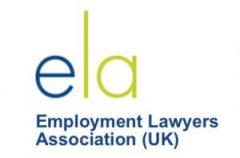After being delayed form April 2020 due to the Coronavirus, the Governments new rules on IR35 for the private sector will come into force on 6 April 2021, passing the responsibility for assessing the employment status of a contractor from the contractor to the medium and large companies that engage them.
Whilst new employment legislation is often received with a collective groan by employers already swamped by red tape, IR35 should be viewed as a good opportunity for all businesses, large and small to reflect upon who they have working with them and to identify the true nature of those relationships, irrespective of whether they are labelled contractors, workers or employees. This is a review we recommend our clients carry out at least once every twelve months to avoid unexpected claims against employment status and is particularly relevant now due to the tax implications generated by this IR35 rules.
First introduced in 2000, IR35 is designed to reduce “tax avoidance” by contractors whom HMRC believe to be “disguised employees”. Typically, these contractors bill the companies they work for via their own personal service or limited company, paying themselves in dividends and avoiding paying employee income tax and National Insurance contributions. These changes make hiring contractors a riskier business, as the Engager will be liable for a fine if they incorrectly identify an IR35 contractor as falling outside of IR35.
One of the key questions under the IR35 legislation is whether the individual would have been an employee of the business if they had been working directly for it. Therefore, various tests for employment status such as whether there is mutuality of obligation, control by the company over the individual and whether the individual has been integrated into the company’ business are used.
HMRC can go back at least six years to determine whether or not IR35 applies and can request payment of outstanding extra income tax, National Insurance contributions, as well as penalties and interest.
From 6 April 2021, the burden of proving if a working relationship is within or outside of IR35 and ensuring that the correct amounts of tax and NICs are deducted, are moving to the company rather than the contractors themselves. Under the new rules, medium and large businesses will be required to provide a statement determining the employment tax status of contractors working through personal service/ limited companies directly to the contractor, including reasons for the determination.
This change to the tax status is a useful prompt to review your working practices. As a business owner, do you know who you have working in your business? Are you confident that the label of contractor is the right one?
Just because someone is called a contractor, does not necessarily mean that they have not evolved to become a worker or an employee irrespective of how they are paid. Particularly now that so many of us are working from home it is even more important to be aware of the relationships you have that go to making up your workforce.
The nature of the relationship as determined by employment law and the HMRC test as part of IR35 are different. But failing to properly identify contractors, employees and workers can have considerable financial consequences with HMRC, beyond into benefits such as holiday pay and sick pay but also other protections such as redundancy entitlements and unfair dismissal.
Businesses may use HMRC’s ‘Check Employment Status for Tax‘ (CEST) tool to establish whether a contractor would be considered to be an employee for tax purposes. HMRC has reaffirmed its commitment to stand by a determination made under CEST where the information provided is accurate even though there are concerns about its accuracy. Contractors will have the right to disagree with the determination through a new business-led status disagreement process.
Although the IR35 rules only apply to tax, the question of whether a worker is an employee or some other form of worker has implications in employment law as well, as employees benefit from more comprehensive statutory rights than other workers. If you would like to review the status of your contractors for employment law purposes, we would be happy to discuss this with you.
If you are a contractor working through personal service/ limited company or a business that engages contractors, you should review your arrangements now, well in advance of the new rules coming into effect and get advice from legal experts to make sure you are compliant with IR35 and other employment laws and regulations.
For more information on this or any other employment law issue please contact Laura Colebrook.









